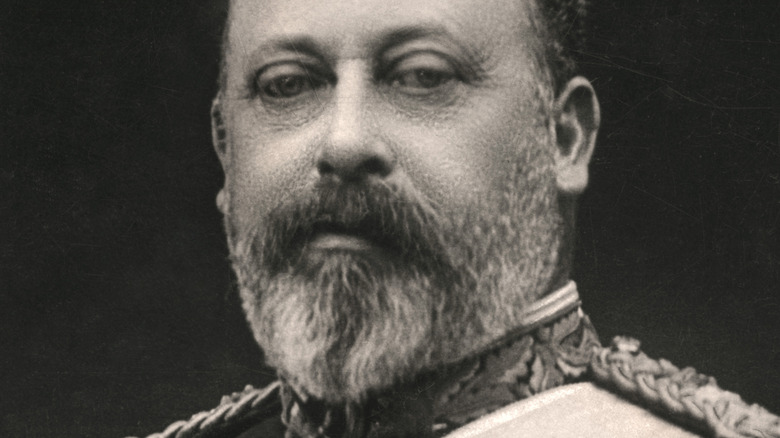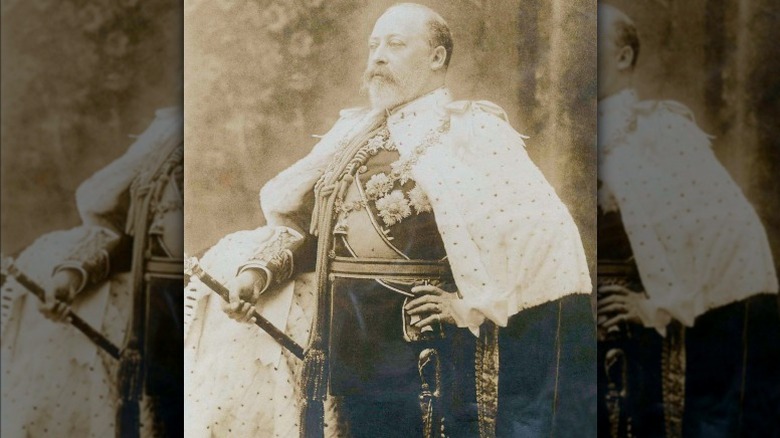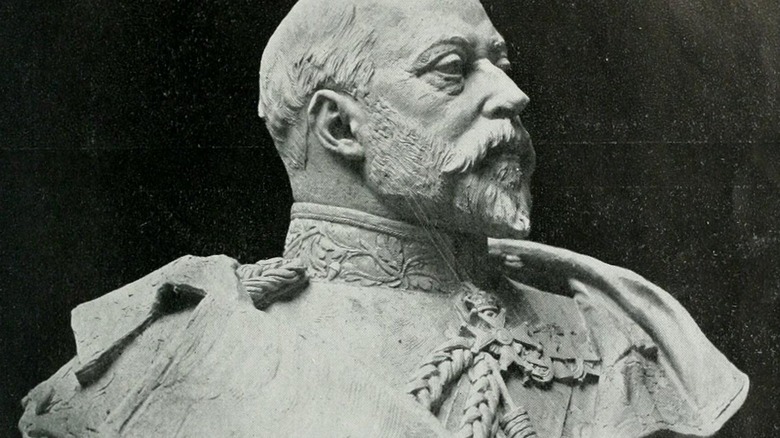The Real Reason Edward VII's Coronation Didn't Happen As Planned
Monarchs of the United Kingdom go through a two-step process (with multiple sub-steps) in order to transition from heir apparent to king/queen. As The Metro reports, their ascension is the first step, and that happens more or less immediately. For example, once Queen Elizabeth II dies, her heir, Prince Charles, will gain the title of king. The coronation, however, happens later — months or even a year or more later — and is simply a ceremony that dots all of the i's and crosses all of the t's of the process.
According to the royal family website, the deeply religious ceremony will be attended by church officials, government officials, and "leading citizens" of the UK and other countries. The monarch recites oaths and prayer, is anointed with oil, gives a speech — the whole bit.
Considering the magnitude and importance of the ceremony, you'd expect it to be so controlled and so rehearsed that it goes off without a hitch. Unfortunately, it doesn't always work out that way: Just ask King Edward VII, who reigned from 1901 to 1910. His coronation was marred by illness and a couple of clumsy near-failures. Fortunately, this was decades before television, so it wasn't broadcast to hundreds of millions of people across the realm, and the only witnesses were the few hundred or so people who were in the room where it happened.
Who was Edward VII?
Edward VII (born Albert Edward in 1841, per Britannica) was quite the guy. His mother was Queen Victoria and his father was prince consort Albert; the period of British history named after his mother — the Victorian Era — was known for its stuffy reliance on moral values, such as prudence and purity, according to the American Enterprise Institute.
Edward said nuts to that and devoted as much of his free time as he could to wooing women — married women, unmarried women, sex workers, it didn't matter. So infamous was Edward's frequenting of Parisian brothels that he earned the nicknames "Dirty Bertie" and "Edward the Caresser."
Nevertheless, when Queen Victoria died in 1901, duty came calling, and Edward stepped up and assumed the role he'd been preparing for, for decades, becoming King Edward VII. By all accounts he was a pretty good king, touring around Europe and currying favor on the continent.
Unfortunately, his coronation featured a couple of missteps, although they don't appear to have set the tone for his generally successful reign.
An illness and a clumsy cleric
Edward VII's coronation was initially scheduled for June 26, 1902, according to Westminster Abbey. However, a few days before, the king came down with a case of appendicitis, per the British Newspaper Archive, as well as peritonitis. Though he was literally days away from what would be the biggest event of his life, to have delayed medical intervention could have killed him, and so he underwent emergency surgery — which he survived with aplomb (he was reportedly smoking cigars in his bed the next day).
A few weeks later, the rescheduled coronation took place, but it still didn't go off without a hitch. A key figure in the coronation of a British monarch is the Archbishop of Canterbury (the head of the Church of England), and the man who had that job at Edward's coronation was so old and feeble that he was nearly blind, having to read his words from a card printed in large letters — and he still muffed a few of his lines. Further still, when it came time to put the crown on the king's head, he dropped it, and then wound up putting it on the king's head backward.
Unfortunately for Edward, his reign wouldn't last for decades like his mother's. He died in 1910, after nine years on the throne, per Britannica.


